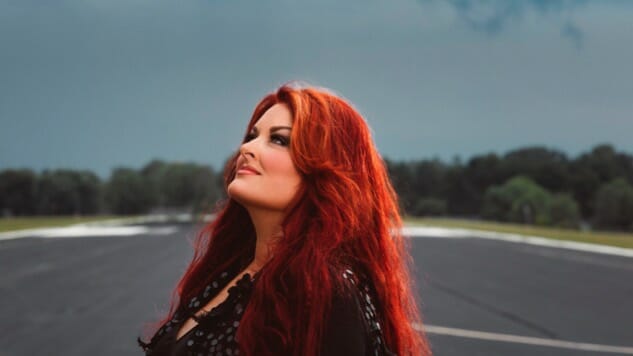Wynonna Judd Talks Johnny Cash, New Nashville and Finally Being Free
“Everything I've ever done is preparing me for this moment in this time in this heartbeat in this breath”

Released earlier this year, Wynonna Judd & the Big Noise is the eighth and perhaps most daring album of its namesake. With over three decades behind her, including multiple Grammy wins, world tours and universal success both as a solo artist and as the other half of the legendary country duo The Judds, Wynonna Judd’s status as an icon of the genre has long been assured. Though not unlike the music itself, Judd’s path hasn’t been without its troubles and heartaches. For that reason, her latest isn’t so much an endeavor into new, unexplored territory as much as it is a rekindling of passion that, according to the 51-year-old Kentucky native, never really went away.
Preceded by a covers album with 2009’s Sing: Chapter 1, Wynonna Judd & the Big Noise is the singer’s first full-length of all original material since 2003’s What the World Needs Now is Love. The 13 years between that record and this year’s release were perhaps the most challenging and uncertain of the musician’s life. From an acrimonious divorce to a DUI arrest to what could have easily been a fatal car accident, what could have proved to be a series of insurmountable obstacles became the foundation for what Judd says is heard in the music now. Judd recently spoke with Paste about the new music and her renewed sense of purpose in this candid interview.
Paste: This album is really special for you for a number of reasons. What was your perspective going in?
Judd: That’s a great question, my dear. You’re right, I’m coming out of an incredibly large challenging time in my life having done what I’ve done and accomplished what I’ve accomplished. Lots of failure in the mix, which is what I’ve learned more from, actually. Truthfully, I can break it down to you real simply. It’s so personal between Cactus and I, what we have been through together. Most of the time, artists go in with marketing first and then they try to fulfill people’s expectations. They try to market before they make the product. It was the exact opposite for us. Cactus and I were staying at a hotel in Coronado. I’m really terrified of the ocean. I had an experience as a child where I almost drowned and I didn’t know which way was up, and I was just really scared. We were out there having a romantic evening after a date night, and he literally took me by the hand and he said, “Do you trust me?” I said, “Yes I do.” I’ve known this man since I was 20, and I’ve loved him ever since.
Thirty years later, we began dating again, having run into each other during transitions in both our lives. But we were on this date night. He took me into the ocean. I was terrified. I’m talking little girl, chatter teeth, the whole thing. He said, “Hold on.” I’m telling you, that became a metaphor for our experience together musically. He took me in, the water got up to my chin, and then the wave came and totally drenched us both. I was terrified. It was dark. But I remember that moment like it was our wedding day. I just remember me holding on to him. I’ve never felt that trust with anyone. That’s how our love affair began. With that being said, when he said to me, “We’re going to make this record and we’re going to do it this way,” I submitted my resignation and fired myself as a control addict. I said, “Okay. I’m going to try it your way. I’ve done it my way, and I’ve succeeded, and I’ve failed.”
I just wanted something different. This goes to a personal level. Not just, “Nashville’s going to love this record.” This is the two of us sitting in a room and deciding we’re going to do it live, and we’re going to do it with people we like. We went to friends. We went to people we loved. We were blown away, and it was a very personal journey that started with just the man and the woman saying to each other, “Do you trust me?” I said yes. I went with the trust I’ve not ever had. He took me down a path I’d not been down before. Now I just want to interpret these words as honestly and as transparent as I can. I think you can hear that. There are moments in the record that I cried because I knew I was crying when I was singing it.
Paste: There’s a different kind of earnestness in the music as well.
Judd: It’s a different place. I’m 51. It’s a big difference from 30. Trust me.
Paste: Were you more retrospective with this record as far as looking back and seeing those obstacles, the failures and successes?
Judd: It was present. I think there were moments when I would be walking back up to the house from the studio going, “God, it’s been a long journey.” There were some really cool moments where I was just like, you know what? Everything I’ve ever done is preparing me for this moment in this time in this heartbeat in this breath. I’m living as fully as I’ve ever lived in my life. There’s a lot of responsibility in that. As free as you are, there’s a lot of responsibility.
-

-

-

-

-

-

-

-

-

-

-

-

-

-

-

-

-

-

-

-

-

-

-

-

-

-

-

-

-

-

-

-

-

-

-

-

-

-

-

-








































